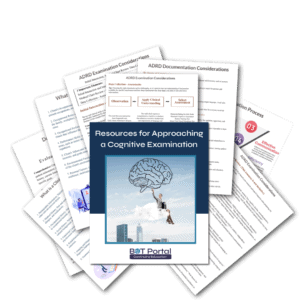
Occupational therapists should confidently claim their seat at the table when it comes to addressing goals for cognition and executive function. Treating these symptoms falls well within our comprehensive scope of practice. Identifying cognitive or executive dysfunction as a barrier to your client’s maximum functional potential necessitates that the restoration, remediation, and maintenance of these functions become integral components of your occupational therapy continuum of care.
Cognitive and executive functions are critical for successful engagement in everyday activities. Cognitive functions include memory, attention, problem-solving, and processing speed. Executive functions involve higher-order cognitive processes such as planning, organizing, initiating tasks, and regulating emotions. Both sets of functions are essential for independent living and achieving personal goals.

 and Driving Activities in Occupational Therapy Thumbnail - Buffalo Occupational Therapy" width="300" height="300" />
and Driving Activities in Occupational Therapy Thumbnail - Buffalo Occupational Therapy" width="300" height="300" />
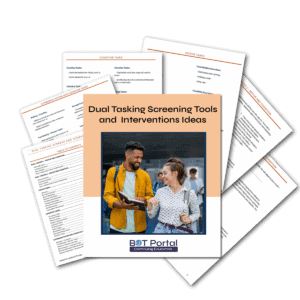

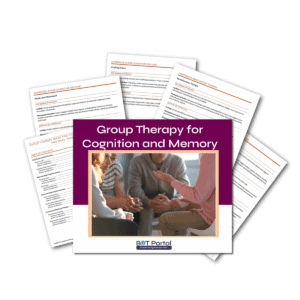
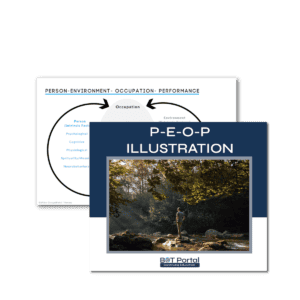

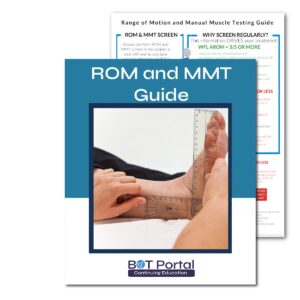
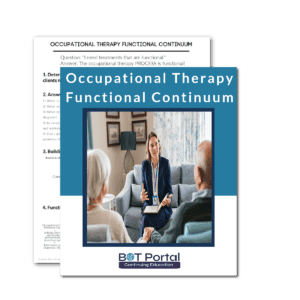
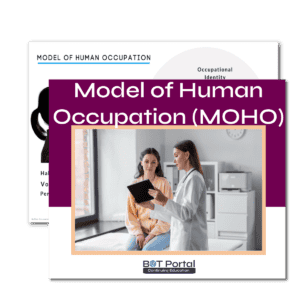
In occupational therapy, cognition treatments are integral for enhancing occupational performance and fostering independence in individuals with cognitive impairments. Understanding the differences between functional cognition, cognitive remedial therapy, and adaptive memory techniques is essential for effective intervention strategies and maximizing functional outcomes.
Functional cognition treatments refers to the application of cognitive skills and strategies in real-life contexts to support engagement in meaningful activities and roles. Occupational therapists focus on improving an individual’s ability to perform daily tasks independently by targeting specific cognitive domains such as attention, memory, problem-solving, and executive function. Functional cognition interventions involve task-oriented activities, environmental modifications, and compensatory strategies tailored to the individual’s unique needs and goals. By incorporating functional cognition into therapy sessions, occupational therapists help individuals develop the skills and confidence needed to navigate daily life activities effectively and participate in meaningful occupations.
Cognitive remedial therapy (cognition treatments focused on remediation), on the other hand, involves structured exercises and activities designed to improve specific cognitive deficits through repetitive practice and skill-building. Occupational therapists use cognitive remedial therapy to target underlying cognitive impairments, such as memory deficits, attentional difficulties, or executive dysfunction. These interventions may include memory exercises, attention-training tasks, problem-solving activities, and cognitive training software programs. Cognitive remedial therapy aims to enhance cognitive function, promote neural plasticity, and improve overall cognitive performance, enabling individuals to better manage daily tasks and responsibilities.
Teaching adaptive memory techniques falls within the realm of functional cognition treatments, as it involves providing individuals with practical strategies and tools to compensate for memory deficits and support independent functioning in daily life. Occupational therapists teach individuals how to use external memory aids, such as calendars, planners, reminder apps, and memory notebooks, to organize tasks, schedule appointments, and recall important information. Additionally, therapists may incorporate cognitive strategies such as chunking, mnemonics, and rehearsal techniques to improve memory encoding, retention, and retrieval. By teaching adaptive memory techniques, occupational therapists empower individuals to overcome memory challenges, enhance task performance, and maintain independence in their daily routines.
Explanation: An occupational therapy plan of care and treatment approach should always be a continuum. Secondly, the rehabilitation frame of reference (compensations and adaptations should be considered for immediate independence while you are restoring/remediating cognitive deficits OR at the end of your restorative plan of care when you know your client is on a maintenance track and requires an added assist to maximize independence.
Special note: If your client has a progressive neurological condition when you know at some point your they will require the procedural memory to use durable medical equipment, adaptive equipment, or assistive technology, it is appropriate to begin training during a restorative plan of care continuum. Your client will benefit from treatment sessions based in repetition even when it feels ‘silly’ because they are functioning well above level necessitating the equipment. In this case, take time educate your client and tell them why you are incorporating the training into their usual restorative sessions.
What is an example of the ‘OT therapeutic flow’?
Memory Enhancement:
Attention and Concentration:
Problem-Solving and Decision-Making:
Planning and Organizing:
Emotional Regulation:
Incorporating cognitive goals into occupational therapy involves a holistic approach that considers the client’s entire lifestyle and daily activities. Here are some strategies:
– Functional Cognitive Activities: Integrate cognitive exercises into meaningful activities. For example, cooking a meal can involve planning, sequencing, and problem-solving.
– Environment Modification: Adjust the client’s environment to reduce cognitive load and enhance function. This might include organizing spaces or using visual cues and reminders.
– Task Analysis: Break down complex tasks into smaller, manageable steps to support clients with executive dysfunction.
– Skill Generalization: Ensure that skills learned in therapy are transferable to real-world situations, enhancing the client’s ability to function independently.
Are you interested in Dual Tasking and why it is so important for an occupational therapy practitioner to address?
Look no further! You will learn different research-supported concepts of dual tasking to help guide your clinical understanding of Dual Tasking in Occupational Performance.
Bonus: It is an AOTA-approved CUE Course!


Don't wait for BURNOUT to consume your life because there just isn't enough time to search for evidence-based occupational therapy resources and training for daily clinical treatments.
Join the BOT Portal for occupational therapy resources and receive 24/7 access to the highest quality resources designed by an experienced therapist speciically for busy, motivated, and passionate therapists and therapy assistants.
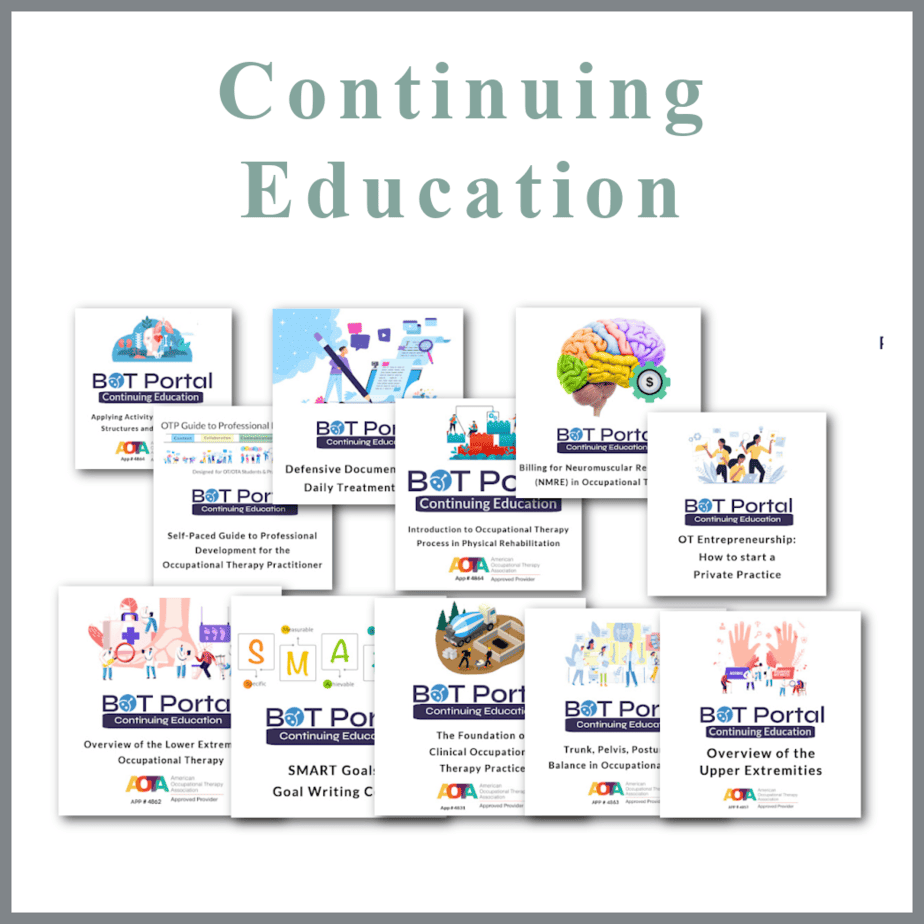
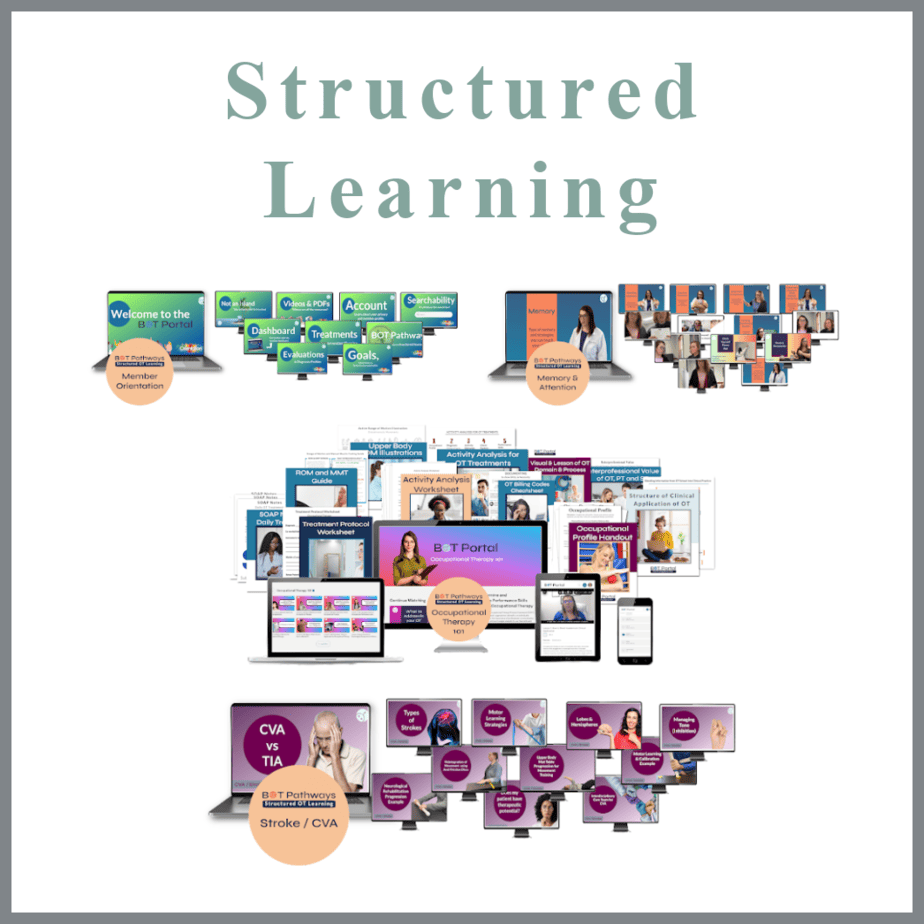
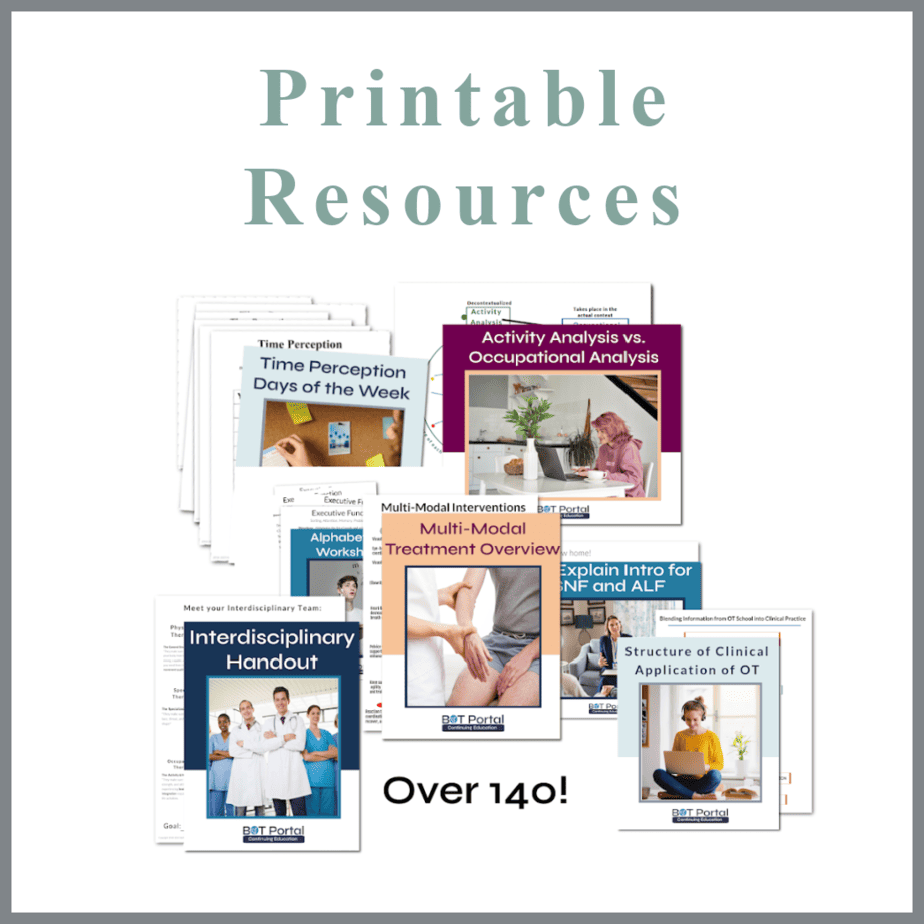

Your investment gives you resources to save you stress, self-doubt, and burnout as you become a confident and competent practitioner who can stand up for your professional point of view and scope of practice.
The patient will demonstrate knowledge and understanding of cognitive impairments in order to increase insight and independence in the occupational domain of health management and chronic illness as evidenced by patient-led verbal discussion diagnosis, symptoms, and solutions with xx weeks
The patient will demonstrate the ability to alternate attention between [number] tasks with accuracy of
The patient will demonstrate the ability to orient to person, place, time, and event with an accuracy of 4/4 over [number] of sessions with [xx] weeks.
The patient will demonstrate the ability to to solve complex problems as evidenced by completion of [name activity you use to measure complex problem solving] with an accuracy of [xx%] within [xx] weeks
The patient will demonstrate auditory memory skills as evidenced by completion of [name activity you use to measure auditory memory skills] with an accuracy of [xx%] within [xx] weeks
The patient will demonstrate improvement in working memory skills as evidenced by completion of [name activity you use to measure working memory skills] with an accuracy of [xx%] within [xx] weeks.